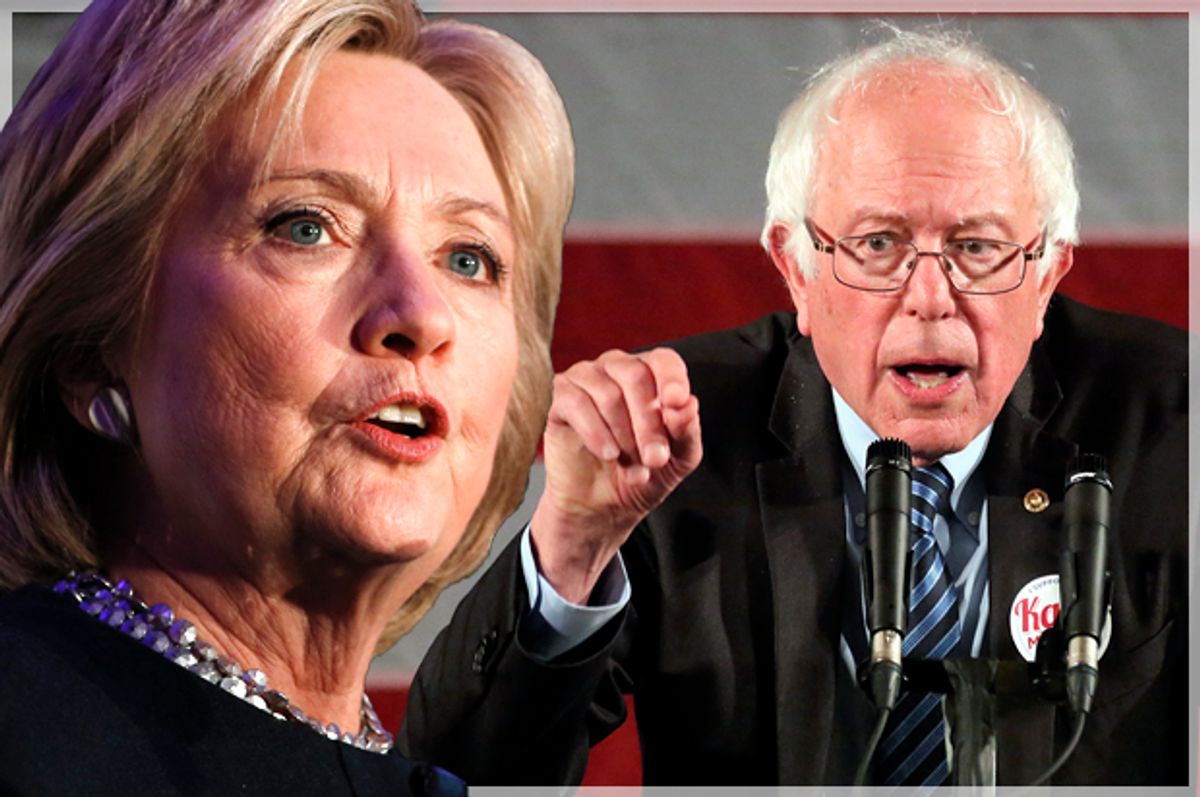Why do people run for president, make a bunch of promises, lose — and then go away as if they have zero power? As if they don’t go back to being rich and affluent with the same affluence that’s needed to be propelled to the highest level of America politics in the first place? I’m so confused.
Last October I was invited to speak at the annual Johns Hopkins Milton S. Eisenhower Symposium, a 100 percent student-led event that is extremely popular, and no wonder why: Past speakers have included Maya Angelou, Nelson Mandela, Bill Nye, Tyra Banks, Michael Bloomberg and even Will Ferrell. I don’t even know how I made this list.
On the day of my talk, I ate dinner with the student organizers at Gertrude’s, the restaurant connected to the Baltimore Museum of Art on the Hopkins campus, where we discussed the symposium’s illustrious history. While getting chills from speaking on a stage that so many amazing people have graced before me, that pesky side of my business brain kicked in.
“Hey, was there anybody that you guys really wanted to do this but couldn’t really afford?”
The students burst out in laughter.
I was serious; I know I haven’t done nearly enough professionally to ask for as high a speaking fee as the list of speakers I mentioned above. But I wanted to see how far off I was.
“We wanted to bring Bernie and Hillary to campus this year, but couldn’t afford it,” one of the organizers said.
“Really?” I responded. “They're both running for president and passed on the chance to talk to Hopkins students? That’s weird. How much did they want?”
“Let’s play a game,” one of the organizers replied. “We will start with Bernie — and you only get one guess.”
I took my time. I don’t like losing.
“Sooo . . . Mr. Socialism. Ummm, I’m feeling the Bern,” I said, scratching my chin, stalling. “Free! No, wait — $25,000?”
The kids laughed. “No, Professor Watkins. He wanted $150,000, and it wasn’t in our budget.”
“One hundred fifty thousand dollars! For Bernie?”
I thought: How in the hell can Sanders advocate for free college while charging $150,000 to give a 40-minute speech to university students? And if that’s what Bernie demanded, what would arguably the most powerful woman in the world ask from the Hopkins team? Their first-born children?
“If Bernie wanted $150,000, then first I’m going to say that I’m being way underpaid,” I said. The table laughed. “And I’m going to say that Madame Secretary, Senator, Former First Lady blow-you-up-on-camera-and-laugh Clinton wanted double — $300,000?”
“Close, D! Really close!” one of the students said. “She wanted $250,000, and we couldn’t swing it.”
(The New York Times reported Clinton's going rate for speaking appearances in 2013 as $200,000. Earlier this year CNN published figures from Clinton's paid speeches to big banks, showing some later appearances that netted more. Sanders' most recent disclosures are from 2014 — with a whopping total of $1,867.42 for the year — but that figure predates his presidential run.)
“Wow” was all I could think at that moment. Months passed. Bernie flunked out of the race earlier this year, and then Donald Trump beat Clinton in a blowout. Both candidates have laid a bit low since Trump's victory and aren’t really throwing around their “I can save the world” language anymore. Sanders has been offering postelection analysis for the future of the Democratic Party, not for the people. But why not?
The problem with politicians is that they are all politicians — they say anything and everything you want to hear during a campaign and then bail on those promises once they get into office or disappear completely when they lose.
Bernie will be coming to Hopkins now (maybe he lowered his price), and I know both Hillary and Bill are still collecting massive checks from speaking fees. Hillary and Bernie could go on separate speaking tours, combine 50 percent of their earnings and use the funds to solve many of the issues they campaigned about. Sure, they can’t make college free, but $150,000 to $250,000 per engagement could send a number of kids to college, feed a bunch of hungry people and erase so much of the pain that exists in our poorest communities. Do they really feel the pain of struggling people, or did it just sound good on the stump?
Saunders and Clinton are both like Batman — people who have a reputation for being heroes but really aren’t. Batman doesn’t really have a superpower other than white privilege. He’s just a wealthy guy who could use his money to put a huge dent in systemic poverty — that dark, ugly poverty that leads people into lives of crime — but instead he gentrifies neighborhoods, which creates crime, and uses the money he inherited and made to buy expensive toys to act out as an irresponsible vigilante.
Yes, Batman fights crime — just like Clinton and Saunders speak up for the people — but talk is just talk and will always be talk. The real question is are they really for the people or just for their votes? I can’t wait to see what happens over the next four years.



Shares